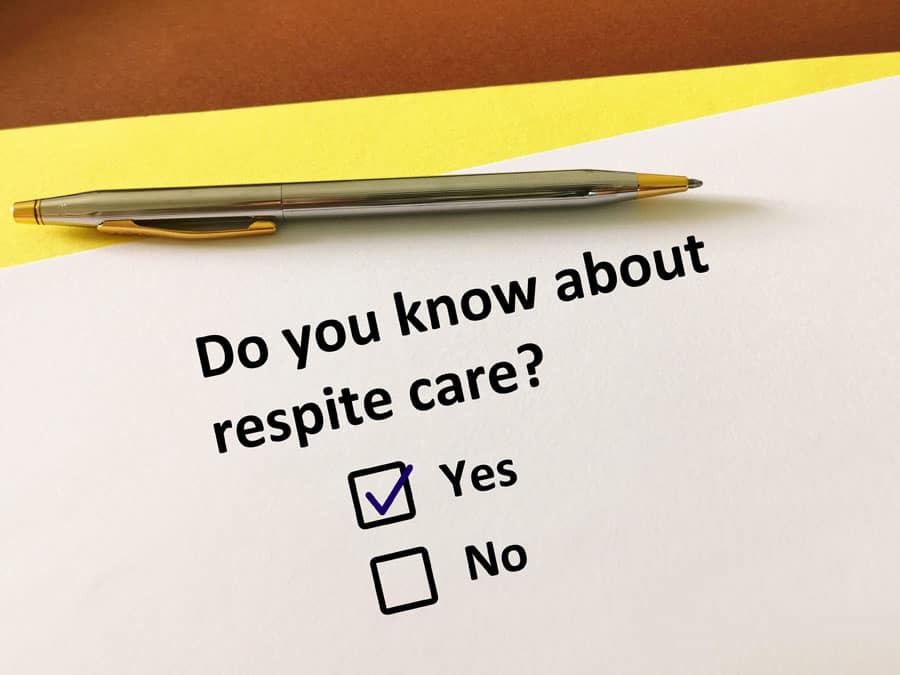Please view our updated COVID-19 guidelines and visiting procedures →.

The biggest surprise to most people who enroll relatives in Home Hospice Care is that the care isn’t 24/7. In fact, the care is about ten or so hours per week, meaning that the patient’s family is really the main caregiving unit. Still, many services are offered, and understanding how best to engage with the hospice team is very important in working smoothly together to provide excellent end-of-life care.
It is extremely helpful to everyone if the patient enters hospice care more than hours or days before death. Many of the care offered—social work, spiritual care, and volunteer assistance—is unable to be given if the patient is actively dying at the time of admission. See our list of ready signals to help decide, "When's the right time for hospice care?"
Since that admission is prompted by a physician referral, the family should initiate that conversation with the primary care provider, or the specialist, if the topic has not arisen, and active curative treatment is coming to an end. Asking what a doctor might recommend to a relative is often a good way to open the communication channel in a way that allows professionals to give an opinion without seeming too directive.

Once the referral has been received by the hospice organization, an assessment will be done by a medical professional, usually a nurse. That initial visit can take place in a hospital, a nursing home, or a residence. The admissions visit can take a couple of hours, and families should feel free to ask whatever questions are on their minds.
No information about the patient is too trivial to convey, as the more the team knows, the better they can customize care for that patient. Social work and spiritual care will also be in touch for first visits. They can address many issues that might be on the minds of the family, and can help with financial planning, funeral services, or any part of the grieving process.

Once the patient has been entered into service, a routine is usually established. Home health aides may be engaged to help with everyday tasks, such as bathing, grooming, or feeding. While exact timing requests cannot always be honored, due to staffing issues, every effort is made to provide help in the part of the day when it would be most useful. The case manager, who is usually a registered nurse, comes less often than the LPNs and aides, and is frequently juggling many families at the same time, so don’t be surprised if arrival times need to be flexible. It often helps to remember that your needs will be addressed once they are present, and that others may wait when you have a pressing issue.
Because the team members are busy—and that is no surprise, given what we all know about the shortages in all parts of the medical field since the start of the pandemic—families may be hesitant to call between visits. Nurses and supervisors are all adamant that patients and families should be encouraged to call with questions, especially when there have been changes in the patient’s condition. Knowing what to look for is crucial in being able to stop problems before they become bigger, and having them in the medical record early can make a big difference to everyone.
Another important time to call the care team is for medication questions or errors. No issue is too small, whether it be a missed dose or uncertainty about whether the dose was ingested, to avoid calling. Addressing symptoms is one of the main goals of hospice care, and being able to do that sooner is in everyone’s best interest.
In extreme weather conditions, whether it is a winter blizzard or a summer storm leading to power outages, the hospice team will try as best they can, to provide what might be needed ahead of time. Should there be reasons to worry about patient safety during a storm, they can arrange for transfer to an inpatient facility for respite care.

Respite Care can also be accessed for caregiver relief or breakdown. If a family member who is primary in the caring process is sick, away, or unable to cope with symptoms of the patient, respite care in an inpatient facility is available for up to five days. This is an important safety outlet for the exhausted family members, and should be discussed with the home hospice team if it is necessary.

Although home hospice care is given when the “normal course of the illness, untreated” would result in death within six months, many patients in fact outlive that prognosis, sometimes for years. Home hospice care is designed to improve the quality of life, and sometimes that results in an extension of that life span. In those cases, a doctor or an APRN is sent to recertify the patient at various points in the care. Your team will arrange that home visit, which is referred to as a FTF, or face-to-face.
Once the end of life approaches, the team will make sure that you know how to use the emergency drugs in the care package provided for you. Again, do not hesitate to call if you are unclear later as to the proper administration of those medications, or about any other signs or symptoms you might observe. You will be told, and given materials to remind you, that you do not need to call 911. An emergency visit by EMTs will result in lifesaving measures that you may not want, and will very likely land the patient in an emergency room, and sometimes facing a hospital stay. It can be hard, but honoring someone’s DNR (Do Not Resuscitate) request will provide the patient with the final location of his or her choice.
If the patient passes away, call the number provided by the hospice, who will come out and make the pronouncement. Your hospice team will be on hand as soon as is possible, to help with any immediate issues, and will later assist in getting the equipment removed and disposing of medications. Bereavement services will also be provided for thirteen months to the surviving family.
This article is meant to address common issues and questions that arise in the course of providing home hospice care. If there is one thing to take away, it is to call the hospice with any concerns, whenever that may be. Support is a major component of hospice care, and providers are there to guide you through what is an emotionally difficult transition, with expertise and comfort.

As a not-for-profit, we depend on generous donors to help us provide customized services and therapies that aren’t completely covered by Medicaid, Medicare, or private insurance.
Please make a gift to help us sustain the highest standard of care.
Admissions may be scheduled seven days a week.
Call our Centralized Intake Department: (203) 315-7540.